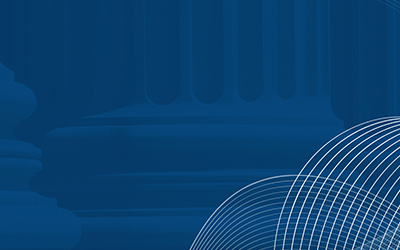Several Federal Agencies have issued COVID-19 (coronavirus) related guidance. On July 26, 2021, the Department of Health and Human Services (HHS) issued guidance addressing how nondiscrimination rules apply to the condition dubbed “long COVID.” On that same day, the Internal Revenue Service (IRS) released Notice 2021-46 to explain further the Consolidated Omnibus Budget Reconciliation Act (COBRA) premium assistance available under the American Rescue Plan Act of 2021 (ARPA). On July 29, 2021, the IRS updated its Frequently Asked Questions (FAQs) on the paid sick and family leave tax credits available under ARPA to clarify the types of employee leaves that employers may claim for the tax credits. These Federal Department releases give employers and plan sponsors guidance on COVID-related issues.
HHS and the Department of Justice (DOJ) issued a July 26 press release commemorating the Americans with Disabilities Act’s (ADA) 31st anniversary and Long COVID disability rights.
Long COVID (also known as “long-haul” COVID) refers to a condition experienced by some individuals infected by COVID-19. Those suffering from long COVID experience symptoms associated with COVID-19 months after being infected by COVID. Long COVID symptoms include tiredness/fatigue, difficulty thinking or concentrating (sometimes called “brain fog”), shortness of breath or difficulty breathing, headache, dizziness on standing, fast-beating or pounding heart (known as heart palpitations), chest pain, cough, joint or muscle pain, depression or anxiety, loss of taste or smell and organ damage. The joint guidance states that individuals experiencing long COVID symptoms can be considered disabled under the ADA, Section 504 of the Rehabilitation Act of 1973 (Section 504) and Section 1557 of the Affordable Care Act (Section 1557). Accordingly, if a worker suffering the above-mentioned symptoms experiences substantially limited major life activities, their employer may need to offer reasonable modifications or accommodations to them. This guidance also provides additional information and best practices to follow when accommodating an employee suffering from long COVID.
On July 26, 2021, the IRS issued Premium Assistance for COBRA Benefits FAQs Part II.
The latest IRS FAQs on the COBRA premium assistance addressed several questions relating to subsidy eligibility, early termination of an individual’s premium assistance eligibility period and how to claim the premium tax credits. First, the FAQs make clear that an Assistance Eligible Individual (AEI) who is entitled to elect COBRA continuation coverage for an extended period should receive subsidized coverage if their extended COBRA coverage falls between the subsidy period (April 1, 2021, and September 30, 2021). Second, the FAQs state that an AEI’s premium assistance period ends for any previously elected COBRA continuation coverage when that individual becomes eligible for coverage under a group health plan or Medicare. Finally, the IRS offers extensive guidance reiterating that the common law employer maintaining the health plan is the entity that can claim the tax credit for subsidizing an employee’s COBRA coverage.
The IRS issued a July 29, 2021 update on the paid sick and family leave tax credits under ARPA.
The revised IRS FAQs clarified that the leave credits reimbursing eligible employers for the cost of providing paid sick and family leave for reasons related to COVID-19 include reimbursement for time off offered to employees for immunization recovery and care. ARPA paid sick and family leave tax credits are similar to those provided under the Families First Coronavirus Recovery Act (FFCRA). Paid leave is available to all employees regardless of their full-time or part-time status. Full-time employees are entitled to 80 hours of emergency paid leave and part-time employees are entitled to the typical number of hours they work in a regular two-week period (e.g., if an employee works 20 hours per week, they are entitled to 40 hours of emergency paid leave). As with the FFCRA tax credits, under ARPA, eligible employers are those with fewer than 500 employees. Through ARPA, such employers can receive tax credits equal to 100% of qualified paid leave wages from April 1, 2021, to September 30, 2021. Additionally, the updated FAQs state that eligible employers can claim tax credits if they offer family leave to employees who accompany a family or household member or other specified individuals to obtain a COVID vaccine. Employers can also claim tax credits for leave given to employees caring for a family or household member or certain other individuals recovering from a COVID vaccine. In addition, the revised guidance gives employers extensive information on how to claim the tax credits on their quarterly tax forms. Interested employers can get more details on coronavirus-related tax relief on the IRS’s ARPA Tax Relief page.
EPIC offers this material for general information only. EPIC does not intend this material to be, nor may any person receiving this information construe or rely on this material as, tax or legal advice. The matters addressed in this document and any related discussions or correspondence should be reviewed and discussed with legal counsel prior to acting or relying on these materials.
Sign up for our Compliance Matters Newsletter
You’ll receive our monthly newsletter, as well as special compliance alerts and invitations to our compliance webinars
Related Content
Products
Employee Benefits Consulting
Our dedicated benefits team is focused on delivering better outcomes – to both your benefits program and ...
Products
Compliance
We provide comprehensive consulting services and in-depth education regarding the ever-changing employee ...
Coronavirus
Keeping You Informed Every Step of the Way Your dedicated resource as the news unfolds The coronavirus is an ...



